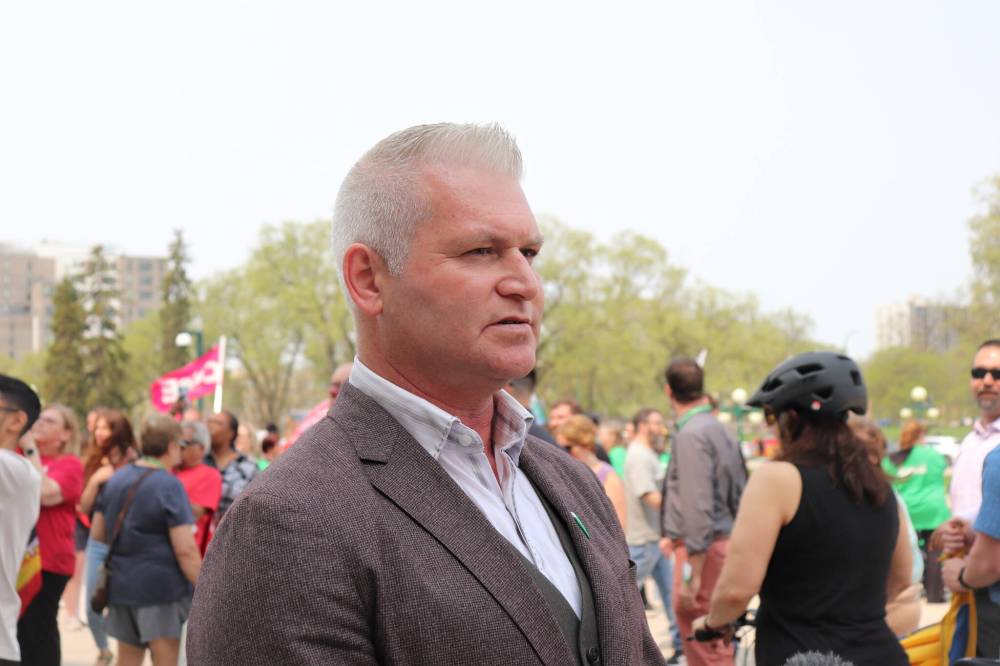Health union says impact of looming strike ‘huge unknown’
Health union says
Advertisement
Read this article for free:
or
Already have an account? Log in here »
To continue reading, please subscribe:
Monthly Digital Subscription
$0 for the first 4 weeks*
- Enjoy unlimited reading on winnipegfreepress.com
- Read the E-Edition, our digital replica newspaper
- Access News Break, our award-winning app
- Play interactive puzzles
*No charge for 4 weeks then price increases to the regular rate of $19.00 plus GST every four weeks. Offer available to new and qualified returning subscribers only. Cancel any time.
Monthly Digital Subscription
$4.75/week*
- Enjoy unlimited reading on winnipegfreepress.com
- Read the E-Edition, our digital replica newspaper
- Access News Break, our award-winning app
- Play interactive puzzles
*Billed as $19 plus GST every four weeks. Cancel any time.
To continue reading, please subscribe:
Add Free Press access to your Brandon Sun subscription for only an additional
$1 for the first 4 weeks*
*Your next subscription payment will increase by $1.00 and you will be charged $16.99 plus GST for four weeks. After four weeks, your payment will increase to $23.99 plus GST every four weeks.
Read unlimited articles for free today:
or
Already have an account? Log in here »
Hey there, time traveller!
This article was published 02/06/2023 (913 days ago), so information in it may no longer be current.
As the strike deadline approaches for thousands of allied health-care workers in Manitoba, their union and Shared Health underscored the point that emergency services will not be affected.
However, the union president said such a strike has never happened, so the potential impact is unknown.
“A strike in allied health has never been tested, as far as I’m aware. So, the exact impact is a huge unknown, and that in itself to us is very concerning, and should be very concerning to the public as well,” said Jason Linklater, president of the Manitoba Association of Health Care Professionals.

Jason Linklater, president the of Manitoba Association of Health Care Professionals, speaks to media after a rally at the Manitoba legislature on May 16. (Tyler Searle / Winnipeg Free Press)
The union has set a strike deadline of June 15 at 8 a.m., which would affect 6,500 workers — lab techs, pharmacists, rural paramedics, addiction counsellors, midwives and respiratory therapists — who work at 200 sites across Manitoba. They have been without a contract for five years, during which time their wages were frozen.
A spokesperson for Shared Health, which is the employer, called a strike a hypothetical situation. Bargaining continues with the help of a mediator, it said, as it reassured Manitobans that emergency response and other health services will be available.
“Ensuring the ongoing availability of services for Manitoba patients, residents and clients is a top priority and we are taking all steps to limit the potential disruption in the event of any strike action,” the spokesperson said.
“Essential service agreements are in place with all employers to ensure essential services are maintained in this type of scenario.”
Linklater said those agreements cover all services necessary to prevent loss of life or serious harm to physical and mental health.
However, he argued the lack of contract has created a staffing crisis that has already affected health care.
“Our members are already working at a reduced capacity because of the employer’s inability to recruit and retain,” Linklater said.
“Areas like EMS services, they’re already short-staffed every single day and so while there’s not a huge reduction in the numbers (of emergency medical staff working during a strike), there’s a reduction in the work that they do.”
He said managers and other non-union workers are supposed to help fill in non-essential services during a strike.
Schedules that list which employees will work in each area haven’t been finalized, Linklater said, emphasizing union members do not want to be forced to strike to settle the dispute.
“We don’t want that to happen, but we do need the government to fund Shared Health appropriately so that we can get a fair and competitive agreement. We are bleeding people and we need to keep them in Manitoba to provide service to Manitobans,” Linklater said.
erik.pindera@winnipegfreepress.com
Twitter: @erik_pindera

Erik Pindera is a reporter for the Free Press, mostly focusing on crime and justice. The born-and-bred Winnipegger attended Red River College Polytechnic, wrote for the community newspaper in Kenora, Ont. and reported on television and radio in Winnipeg before joining the Free Press in 2020. Read more about Erik.
Every piece of reporting Erik produces is reviewed by an editing team before it is posted online or published in print — part of the Free Press‘s tradition, since 1872, of producing reliable independent journalism. Read more about Free Press’s history and mandate, and learn how our newsroom operates.
Our newsroom depends on a growing audience of readers to power our journalism. If you are not a paid reader, please consider becoming a subscriber.
Our newsroom depends on its audience of readers to power our journalism. Thank you for your support.



